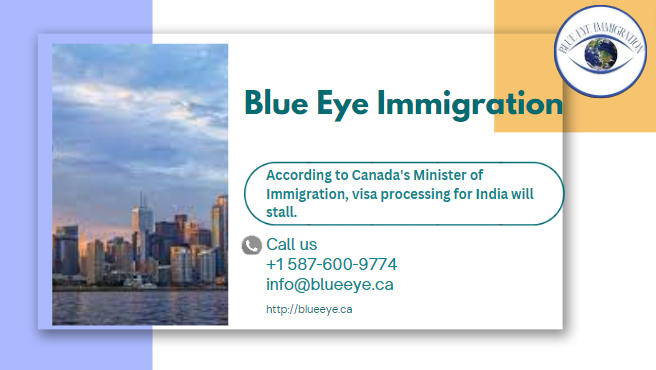Indian citizens seeking to visit Canada would experience a delayed visa processing time due to the ongoing diplomatic issue between Canada and India.
Marc Miller, Canada’s Minister of Immigration, just confirmed this at a news conference in Ottawa on Thursday, October 19.
India’s desire that Canada cut the number of diplomats it has stationed in India is the cause of the slowness.
41 Canadian diplomats have reportedly departed India, according to Mélanie Joly, minister of foreign affairs of Canada. Only 21 diplomats from Canada are now stationed in India as a result.
The two nations are in disagreement after Canadian Prime Minister Justin Trudeau accused India of killing famous Sikh activist Hardeep Singh Nijjar on September 18.
According to Miller, the number of Canadian employees working in India would be drastically reduced by Immigration, Refugees and Citizenship Canada (IRCC). An IRCC announcement claims that there will only be 5 IRCC employees left.
Miller wants to reassure Canadians who have business in India and relatives or friends there that Canada will continue to accept and process all applications for temporary and permanent residents. However, the fewer employees will have an immediate impact. While IRCC is making adjustments to the workload for Visa Application Centres (VACs), which currently handle the bulk of applications from India, some work will still need to be completed by email.
India will therefore likely provide services that are slower and with delayed processing, according to Miller. Customers may see that it is taking longer to process their applications, respond to their inquiries, and insert their visas into their passports.
Since VACs are run by outside parties, business as usual will continue. At one of the 10 IRCC centers in India, applicants can still submit biometrics, send passports, and receive administrative assistance.
Miller emphasized that immigrants from India are important to Canada and that the IRCC would continue to welcome them. Students will still be welcomed by Canada’s Designated Learning Institutions (DLIs), and new applications will still be handled, although regrettably more slowly than previously.
The majority of Indian applications are already being handled outside of India, according to the IRCC statement. It claims that 89% of applications from India are handled via the IRCC’s international network. The five IRCC employees now on the ground in India would concentrate “on work that requires an in-country presence such as urgent processing, visa printing, risk assessment, and overseeing key partners.”
According to the IRCC announcement, Indian clients should anticipate delays in:
- processing times overall
- answers to their questions
- returning their passports or visas
India is by far the main source of immigrants to Canada. Of the more than 437,000 new permanent residents that Canada accepted in 2022, over 118,000 were Indians, or 27% of the total. Additionally, 41% of the more than 551,000 new international students that Canada admitted last year—or over 226,000 students—came from India. In 2022, around 60,000 Indians acquired Canadian citizenship.
Canada has more than 100 distinct economic class immigration routes. Indians are well-positioned under Canada’s immigration system because of their high levels of education, job experience, and abilities, as well as their familiarity in English. Before determining whether to submit an application for permanent residency, many Indians opt to study in Canada first. The Student Direct Stream (SDS), a fast-track study permit method offered by Canada, is a popular choice for Indians. Over 95% of SDS applications, according to IRCC statistics, come from India.
